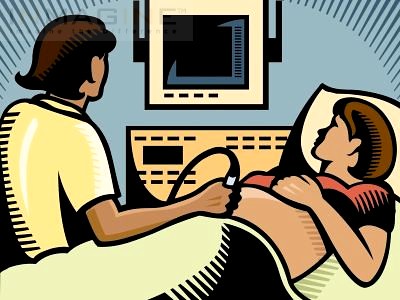Diet Heartburn heartburn during pregnancy Despite being very uncomfortable and sometimes painful for the pregnant, heartburn and indigestion are some of the most common symptoms of pregnancy but do not bring any problems to the baby. Usually appear after the second half of pregnancy and continues until the baby is born.
The causes of indigestion are the same as those of a pregnant woman: eating healthy foods altogether. But also in this period are added reasons why the digestive process is different.
During the first months of pregnancy produce large amounts of progesterone and estrogen, which relax the smooth muscles throughout the body including the gastrointestinal tract. This brings the food moving very slowly through the stomach and intestines, giving a feeling of indigestion or at least very slow digestion. It can be annoying, but it is beneficial to the baby as being more time in the digestive tract is greater absorption of nutrients into the bloodstream and in turn to the placenta and your baby.
The acidity results from the relaxation of the ring of muscle that separates the esophagus from the stomach, allowing food along with stomach acid reflux into the esophagus, causing the sensation of burning and burning characteristics. Occurs because the esophageal mucosa is very sensitive and stomach acid (hydrochloric acid) is extremely irritating. Can be increased in the last quarter of the enlarged uterus pressing on your stomach.
How can you avoid these discomforts?
is almost impossible during the nine months of pregnancy to avoid some of these situations, but there are some tricks that will make this the least.
• Avoid excessive weight gain addition to provoke
heartburn and indigestion, excessive weight gain during pregnancy can bring some complications that can harm both you and your baby.
• Avoid tight clothing

especially around the abdomen and waist.
• Do not drink too much liquid during meals
for pregnancy is recommended to drink 8 to 10 glasses of water a day, but we recommend that you do between meals and not when you're eating.
• Eat less and more often
Try to eat small cantidades de comida a lo largo del día en vez de pocas comidas abundantes y mastícalas más de lo habitual.
• No consumas alimentos que provoquen acidez
Elimina de tu dieta todo lo que provoque malestar, especialmente fritos o comidas grasosas, salchichas, chorizos, salames, alimentos que contengan cafeína (chocolate, café), alcohol, bebidas gaseosas, caramelos de menta, y otras cosas que personalmente notes que te provocan m

alestar digestivo.
• Consume alimentos adecuados
Son ideales los alimentos de una
dieta contra la acidez .
• No te acuestes inmediatamente después de comer
Espera por lo menos 1 hour to lie down to 3 hours to go to sleep. • Do not smoke
addition provoke digestive problems, snuff is harmful to your baby.
• Sleep with your head elevated
Lay down your head on a pillow at a height of at least 15 inches

he rest of the body. Gravity will cause no stomach acid to flow into the esophagus and also help the digestive process.
• Practice relaxation techniques
yoga, conscious breathing and other techniques can come in handy to avoid heartburn or indigestion.
• Take an antacid
If the above tips unrest continue to ask your doctor about the possibility of using an antacid allowed. The most recommended are those containing magnesium. Avoid those containing sodium or sodium bicarbonate and in some cases, sodium may be harmful. ---------------------------
PUBLISHED:
Babysitio
More Information: Pregnancy & More
 Yesterday we had our fifth control and finally we could see the sex of our baby is a boy, we are very happy. For me to know her sex began to imagine how it was and I realized that my life is indeed a little person that I have to look after, I started thinking about all the responsibilities that come later and gave me a feeling of happiness and shock .....
Yesterday we had our fifth control and finally we could see the sex of our baby is a boy, we are very happy. For me to know her sex began to imagine how it was and I realized that my life is indeed a little person that I have to look after, I started thinking about all the responsibilities that come later and gave me a feeling of happiness and shock ..... 




